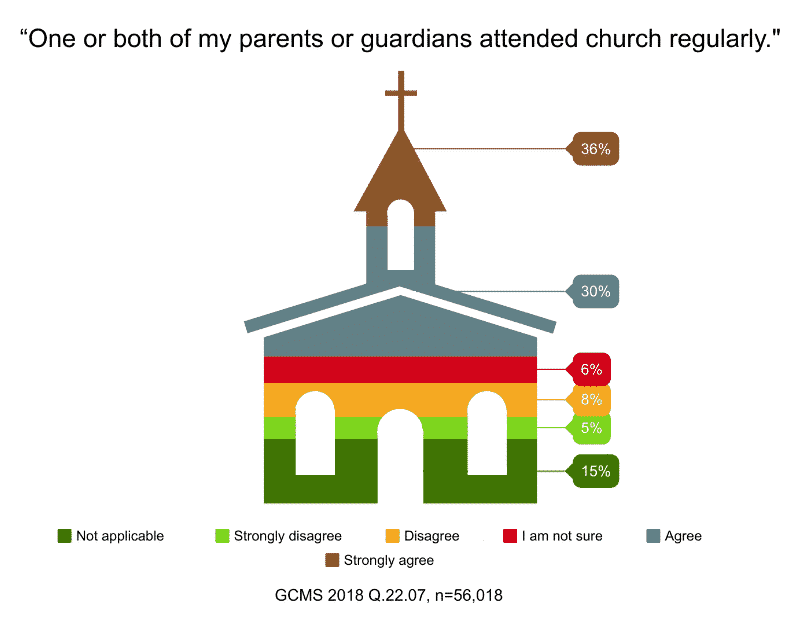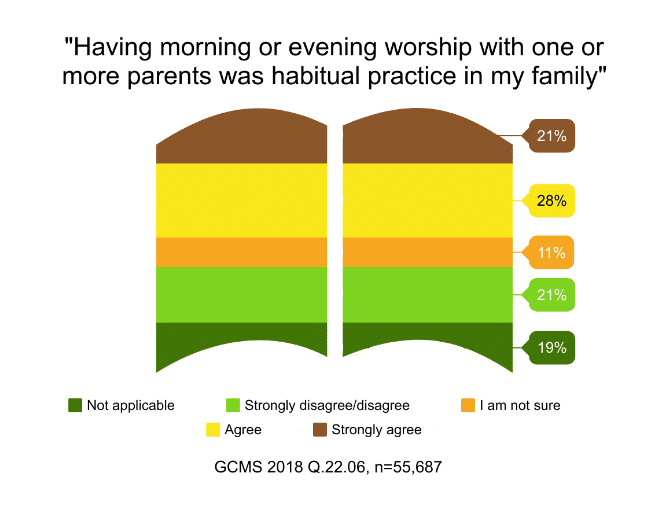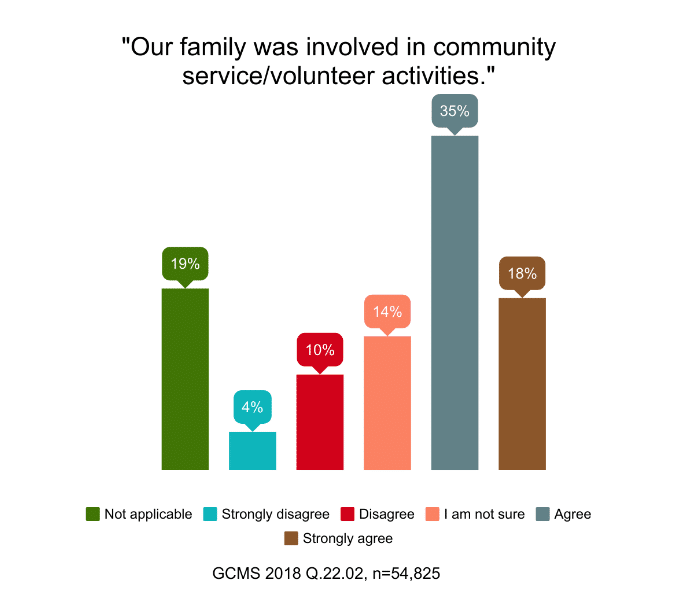Parents have a great impact on shaping their children–we all know that. But how does parenting shape religious experience? Research has shown that involvement in religious activities fosters an authoritative, warm, active, and expressive style of parenting; additionally, parents who attend religious services are more likely to enjoy a better relationship with their children.((Pearce, L. D. & William G. Axinn. (1998). The impact of family religious life on the quality of mother-child relations. American Sociological Review, 63(6), 810–828.)) It is clear that religious involvement influences parenting style, and parenting style indicates the level of religious involvement a child experiences. Research has also shown that the greater a child is involved in religious activities, the more likely the child and parent will agree about the quality of their relationship,((Aquilino, W. S. (1999). Two views of one relationship: Comparing parents’ and young adult children’s reports of the quality of intergenerational relations. Journal of Marriage and Family, 61(4), 858–870.)) have more similarities in their values, and develop a greater emotional closeness between them.((Pearce, L. D. & Haynie, D. L. (2004). Intergenerational religious dynamics and adolescent delinquency. Social Forces, 82(4), 1553–1572.))
As part of the 2018 Global Church Member Survey (GCMS), church members were asked about three aspects of church involvement in their family of origin: church attendance, family worship, and community service involvement.
The Bible says in Matthew 18:20, “For where two or three are gathered in my name, there am I among them.” Taking part in corporate worship together is an important element of spiritual life. As such, GCMS 2018 global participants were asked to respond to the statement, “One or both of my parents or guardians attended church regularly” (Q22.07). Two thirds of respondents agreed or strongly agreed with this statement, with more than one third (36.3%) of respondents agreeing strongly. A small percentage (6%) indicated that they were not sure, while 13.1% disagreed to one extent or another. However, 15% of respondents indicated that this was not applicable (likely because they were not raised in the Adventist Church). It is clear that many members were raised to value regular church attendance.

As part of the same survey, members were asked to respond to the statement, “Having morning and evening worship with one or more parents was a habitual practice in my family” (Q22.06). Almost half (48.6%) of respondents agreed (27.8%) or strongly agreed (20.8%). Eleven percent indicated that they weren’t sure. However, over one in five (21.4%) of respondents disagreed or strongly disagreed. Nearly the same amount (19.3%) indicated this question did not apply to them; it is likely that many of these respondents were not raised Adventist or Christian. However, this could also be linked to unengaged parents. Further study on this topic needs to be done to determine which it is.

A good way of living out one’s faith is by serving others. In Luke 6:38, we read, “Give, and it will be given to you. Good measure, pressed down, shaken together, running over, will be put into your lap. For with the measure you use it will be measured back to you.” Participants in the 2018 GCMS were also asked to respond to the statement, “My family was involved in community service/volunteer activities” (Q22.02). Over half (53.2%) agreed (35.3%) or strongly agreed (17.9%), indicating that their family of origin had been involved in serving others. However, one in ten disagreed (9.9%) or strongly disagreed (4.1%); and almost one in five indicated that this question did not apply to their family of origin.

The Bible and writings of Ellen G. White encourage Adventists to build strong relationships within their families through the attendance of church service and involvement in other religious activities. What have your own familial practices been in regards to church attendance, family worship, and community service?
For more data on the 2018 GCMS, look at the following presentation by Dr. David Trim from the Office of Archives, Statistics, and Research:
2018 Annual Council – Global Church Member Survey Data Report
Creado en colaboración con el Instituto del Ministerio de la Iglesia (Institute of Church Ministry).
Published by ASTR

